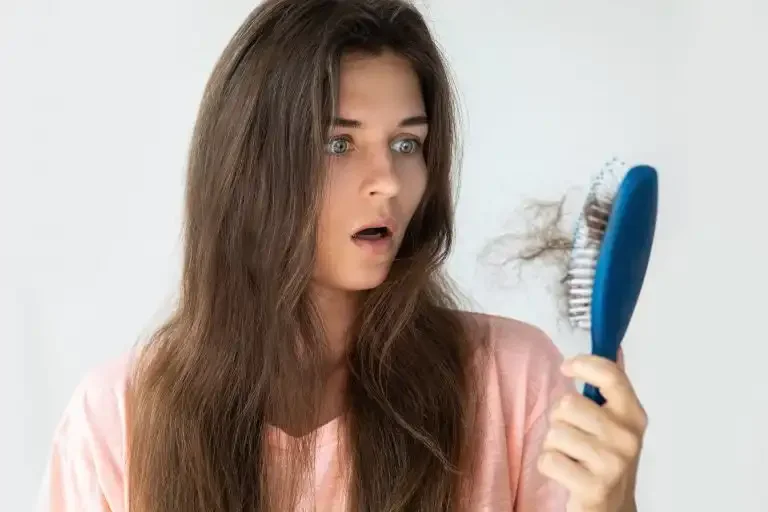Even after almost a year, the stress of covid-19 is resulting in increased hair loss
If you have been losing your mind over losing hair since the beginning of the pandemic, you are not alone.
Our hair grows in different stages and many factors contribute to hair loss. Doctors agree the lockdown has made people more aware of their hair and skin issues and has brought the focus back on an individual’s well-being.
“The increased stress during this pandemic situation has manifested in different ways and hair fall is one of the common issues that we have seen among many patients,” says Madhulika Mhatre, dermatologist, Wockhardt Hospitals, Mumbai. “However, before being alarmed or stressed about the hair fall, it is worthwhile to know that losing up to 100 hair daily is considered normal.”
The reason and the solution to this lie in the growth phase of our hair.
The hair cycle comprises three stages—growing phase (anagen), resting phase (catagen), and shedding phase (telogen). “The hair that you see fall when you wash or comb your hair is telogen hair and up to 15% of our hair is in this stage at any time. The rest of the hair is in the anagen phase, catagen is a small phase so is hardly recognizable,” explains Rinky Kapoor, cosmetic dermatologist, and dermato-surgeon, The Esthetic Clinics. In case of a stressful event, close to 50% of the hair in the growing phase goes into the shedding or telogen phase, leading to excessive hair fall. Temporary hair loss has been a common occurrence in the past year. “This type of hair loss is a reactive hair loss triggered by metabolic stress, hormonal changes, and medications. The association of stress and anxiety with hair loss is a vicious cycle. Stress causes a large percentage of hair follicles to remain in the resting phase. These strands are shifted to the telogen stage, leading to hair shedding. This may lead to increased stress,” says Dr. Mhatre.
Why Else are you Losing Hair?
In many cases, people were already suffering from hair loss but started noticing it only during the lockdown. “Now that we are at home more, many are not exercising, sitting for long hours, consuming excess sugar and junk food, which leads to being overweight. People have lost jobs, salaries have been cut, and all these situations have led to anxieties and stress, triggering hair loss,” says Dr. Kapoor. Those who suffer from obesity also have hormonal imbalances, which can lead to hair loss.
Telogen effluvium usually occurs post the first three months after a stressful event. Doctors have also seen patients who have recovered from covid-19 experience heavy hair fall because of low immunity, medication, and stress. This hair loss is temporary. With the right supplements and growth serums, the hair will recover in a couple of months. For those who have seen hair loss in the initial stages of the outbreak, and seen it come back after a pause, there might be another reason. “There is an increase in the normally observed seasonal shedding of hair during winters. This could be a probable cause/reason as to why this recurrence may happen,” reveals Dr. Mhatre.
So, what’s the solution?
Exercising and eating healthy. “It is important to have a balanced diet that gives enough carbs, good fats, and protein,” says Dr. Kapoor. However, stressing over eating right and counting calories is not going to help. “You need to de-stress. Get involved in a good hobby or practice yoga. Choose the right products, keep hair procedures to a minimum and seek the advice of a qualified dermatologist who can help you get to the root of the problem,” recommends Dr. Mhatre.
Source: https://lifestyle.livemint.com/fashion/beauty/why-bad-hair-day-is-still-haunting-us-111610728739882.html










